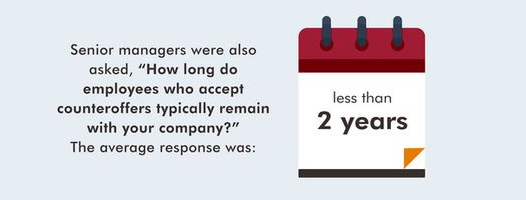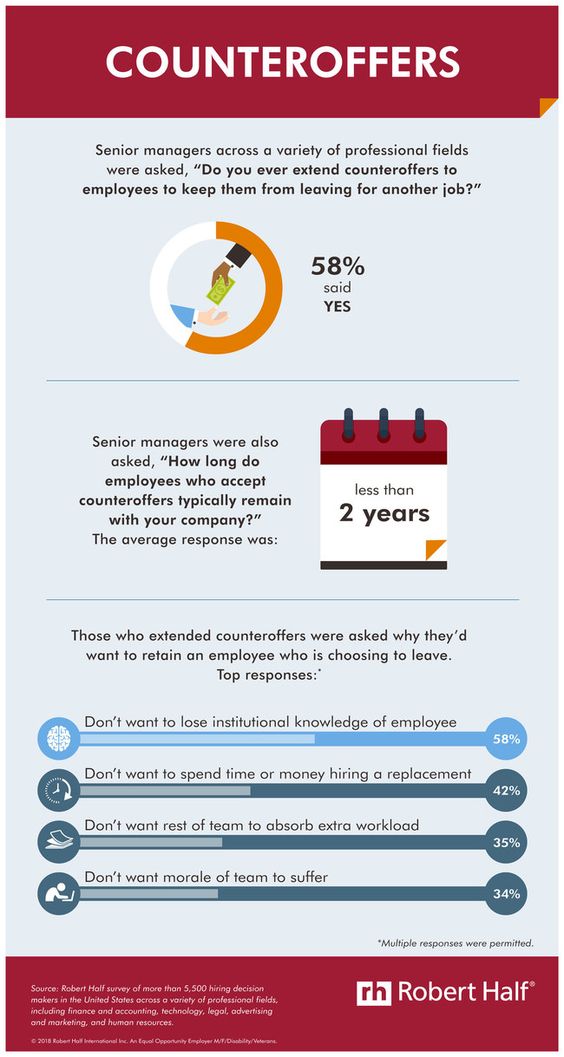
In the fight to hold onto top talent, many companies are offering higher salaries to workers who announce they’re planning to quit for a better job opportunity. But new research from global staffing firm Robert Half suggests this method serves only as a stop-gap retention strategy for employers and isn’t a long-term career solution for employees. The findings show staff members who accept counteroffers typically end up leaving the company in less than two years.
Senior managers across a variety of professional fields, including finance and accounting, technology, legal, advertising and marketing, and human resources, were asked, “Do you ever extend counteroffers to employees to keep them from leaving for another job?” Their responses:
Yes: 58 percent
No: 42 percent

Source: Robert Half
Senior managers were also asked, “On average, how long do employees who accept counteroffers remain with your company?” The mean response was 1.7 years.
The primary reasons leaders said they extend counteroffers are to prevent the loss of an employee’s institutional knowledge and to avoid spending time or money hiring a replacement.
“Counteroffers are typically a knee-jerk reaction to broader staffing issues,” said Paul McDonald, senior executive director for Robert Half. “While they may seem like a quick fix for employers, the solution is often temporary. When employees accept a counteroffer, they will likely quit soon afterward.”
Professionals should avoid these offers, McDonald advised. “Money doesn’t solve everything. If you accept a counteroffer, your employer may question your loyalty to the company. And, more importantly, the root causes of why you were looking to leave in the first place may still exist.”
Robert Half offers workers the following advice when considering a career move:
- Create a list of reasons for potentially leaving your current job. Ask yourself if the issues can be resolved with help from your manager or employer before giving notice. If you want to work from home one day per week or seek a raise, ask your boss directly instead of pursuing a competing offer.
- Look within for opportunities. Explore internal career moves or consult your manager to see if there are ways to make your current job more interesting or challenging before you consider quitting.
- Know the potential consequences of accepting a counteroffer. If you decide to stay, your employer may quickly launch a search for a replacement and your colleagues may resent you if they find out you got a raise. In addition, it’s likely the counteroffer won’t fix the problems that caused you to look for a new job.
About the Research
The online survey was developed by Robert Half and conducted by a leading independent research firm. It includes responses from more than 5,500 hiring decision makers in the United States across a variety of professional fields.
